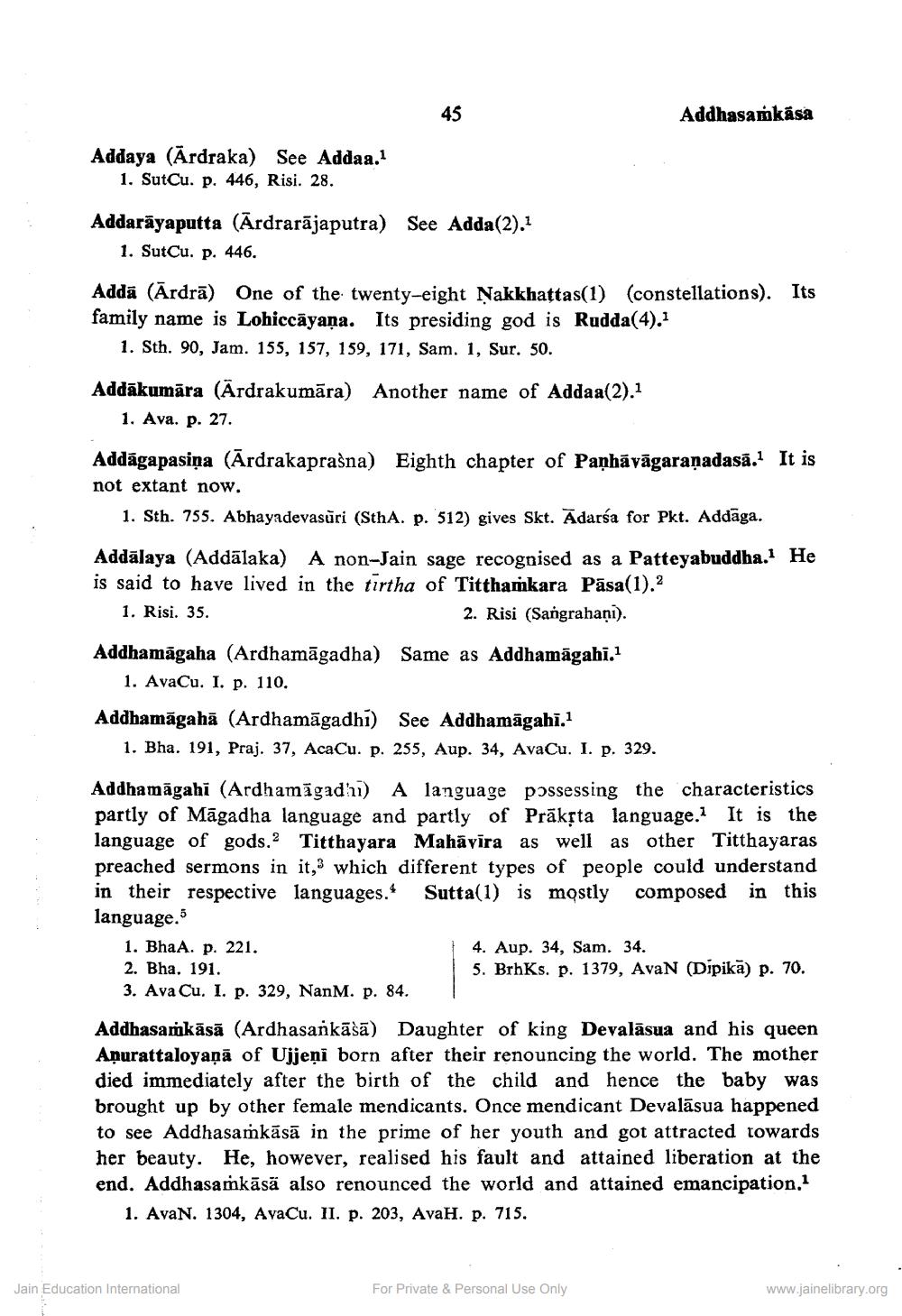________________
45
Addhasamkása
Addaya (Ārdraka) See Addaa.1
1. SutCu. p. 446, Risi. 28.
Addarāyaputta (Ārdrarājaputra) See Adda(2).
1. SutCu. p. 446.
Its
Addā (Ardrā) One of the twenty-eight Nakkhattas(1) (constellations). family name is Lohiccāyaṇa. Its presiding god is Rudda(4).1
1. Sth. 90, Jam. 155, 157, 159, 171, Sam. 1, Sur. 50.
Addākumāra (Ärdrakumāra) Another name of Addaa(2).1
1. Ava. p. 27.
It is
Addāgapasiņa (Ardrakaprasna) Eighth chapter of Paṇhāvāgaraņadasā. not extant now.
1. Sth. 755. Abhayadevasūri (SthA. p. 512) gives Skt. Ādarśa for Pkt. Addīga.
Addālaya (Addālaka) A non-Jain sage recognised as a Patteyabuddha. He is said to have lived in the tirtha of Titthamkara Pāsa(1).2 1. Risi. 35.
2. Risi (Sangrahaņi).
Addhamāgaha (Ardhamāgadha) Same as Addhamāgahī.1
1. AvaCu. I. p. 110.
Addhamāgahā (Ardhamāgadhi) See Addhamāgahi.1
1. Bha. 191, Praj. 37, AcaCu. p. 255, Aup. 34, AvaCu. I. p. 329.
Addhamāgahi (Ardhamāgadh) A language possessing the characteristics partly of Māgadha language and partly of Prāksta language. It is the language of gods.2 Titthayara Mahāvīra as well as other Titthayaras preached sermons in it, which different types of people could understand in their respective languages. Sutta(1) is mostly composed in this language.5 1. BhaA. p. 221.
4. Aup. 34, Sam. 34. 2. Bha. 191.
5. BrhKs. p. 1379, AvaN (Dipikā) p. 70. 3. Ava Cu. I. p. 329, NanM. p. 84.
Addhasamkāsā (Ardhasankāšā) Daughter of king Devalāsua and his queen Apurattaloyaņā of Ujjeņi born after their renouncing the world. The mother died immediately after the birth of the child and hence the baby was brought up by other female mendicants. Once mendicant Devalāsua happened to see Addhasamkāsā in the prime of her youth and got attracted towards her beauty. He, however, realised his fault and attained liberation at the end. Addhasamkāsä also renounced the world and attained emancipation.
1. AvaN. 1304, AvaCu. II. p. 203, AvaH. p. 715.
Jain Education International
For Private & Personal Use Only
www.jainelibrary.org




